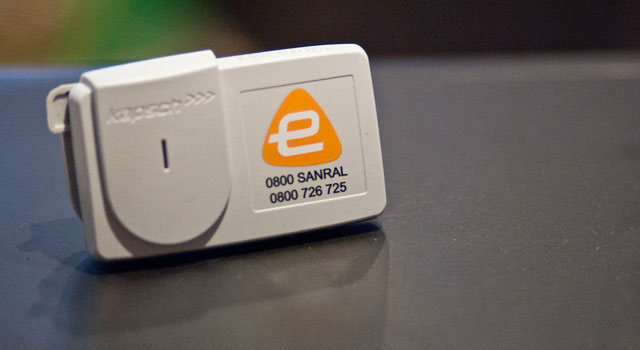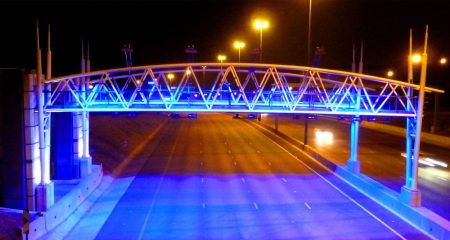
The implementation of e-tolls on Gauteng highways is imminent, the transport department and the national roads agency said on Sunday. “There are a few steps left in this process, but the implementation of the e-toll system is well on its way,” Sanral boss Nazir Alli said in a statement issued with the transport department.
On Friday, draft regulations and notices were published in the Government Gazette detailing how the tolls will work.
On Wednesday, the national council of provinces approved an amendment bill necessary to introduce e-tolling. “We are starting to implement the final steps before e-tolling begins,” Alli said.
Only two more legal step had to be completed: the 30 days the public had to comment on the draft documents gazetted; and the signing of the amendment bill into law by President Jacob Zuma.
“We have followed all due process and have all the necessary infrastructure in place to commence,” said Alli.
The Democratic Alliance condemned what it called the “arrogance” behind Sunday’s announcement.
“Sanral’s announcement shows arrogance of the highest order,” said DA Gauteng caucus head Jack Bloom, who added that the e-toll issue would affect the ANC in the 2014 general election. “The e-tolls will be a fiercely contested election issue that will cost the ANC badly.”
The e-tolls have been heavily criticised by a number of organisations, including trade union federation Cosatu. It had intended staging a protest on Friday, but was blocked from doing so by a court.
In December, the N3 highway was briefly closed when protesting motorists parked their cars and danced during a drive-slow motorcade. This week, a number of religious groups raised concerns about the costs of the tolls.
Dutch Reformed Church general synod chairman Nelus Niemandt said e-tolling posed a “moral, ethical dilemma”.
The civil society group, Opposition to Urban Tolling Alliance (Outa), has fought a lengthy court battle to try prevent the implementation of e-tolling. The high court in Pretoria granted Outa leave to appeal its dismissal of the civil group’s application to have e-tolling scrapped, and this will be heard by the supreme court of appeal in Bloemfontein in September.
Most of the criticism against the e-tolls has been based on their affect on ordinary South Africans, who will suffer the cost of using roads necessary for their jobs. It has also been claimed that there was a lack of consultation about the process.
Sanral said on Sunday that it believed e-tolling was a “sustainable” way of funding the upgrading of Gauteng’s freeway system.
Outa chairman Wayne Duvenage has suggested that the government could use other means of paying for road improvements. — Sapa




